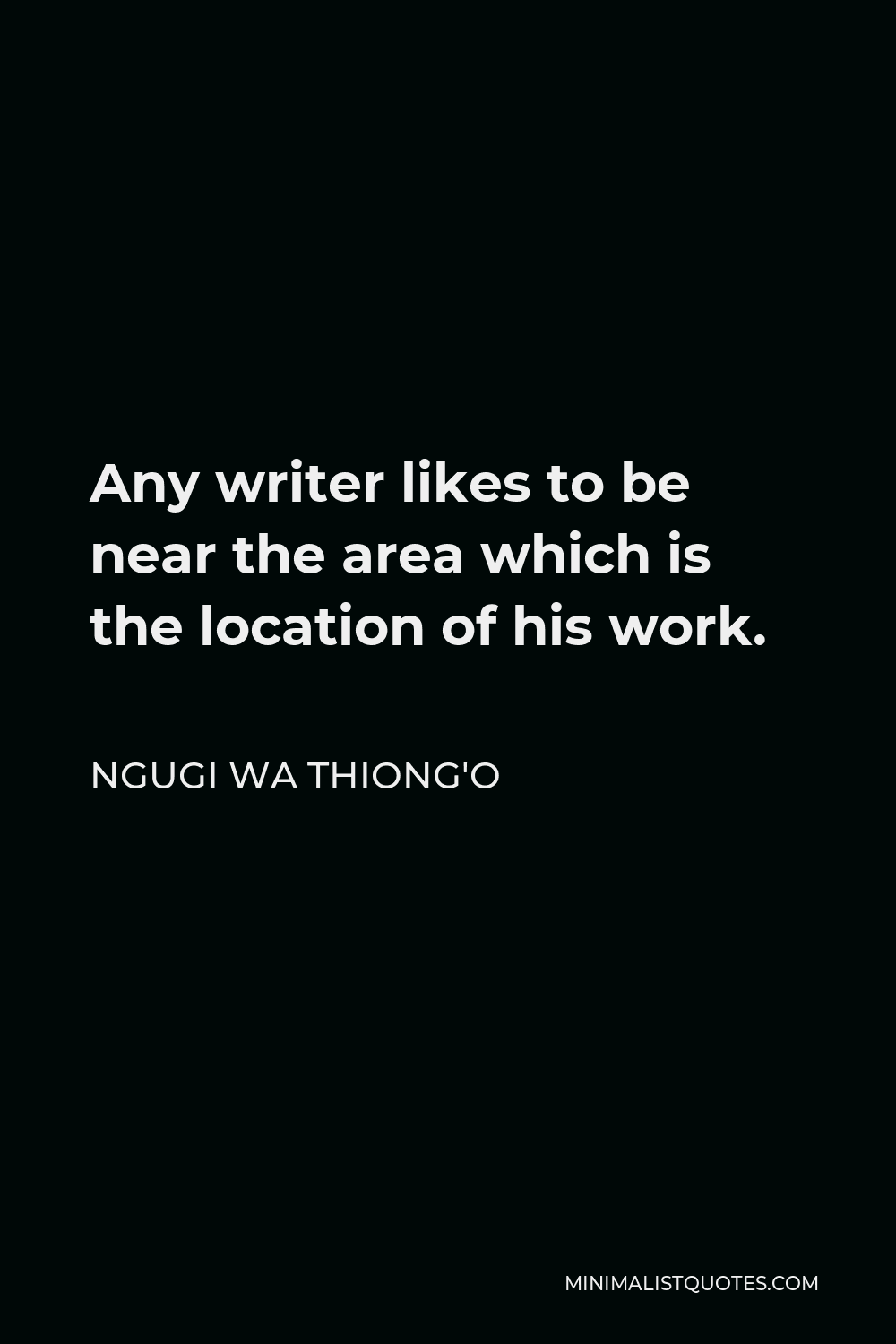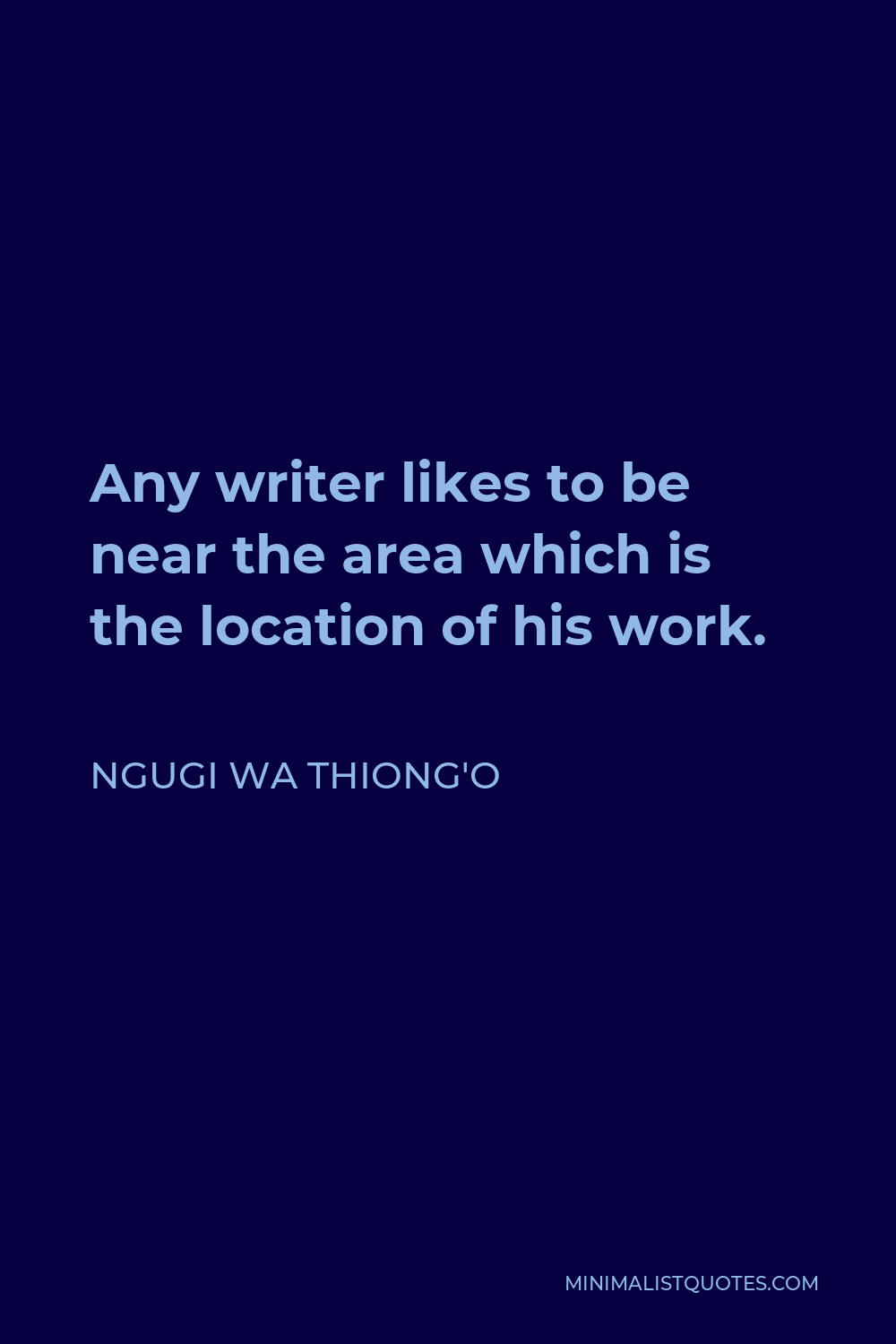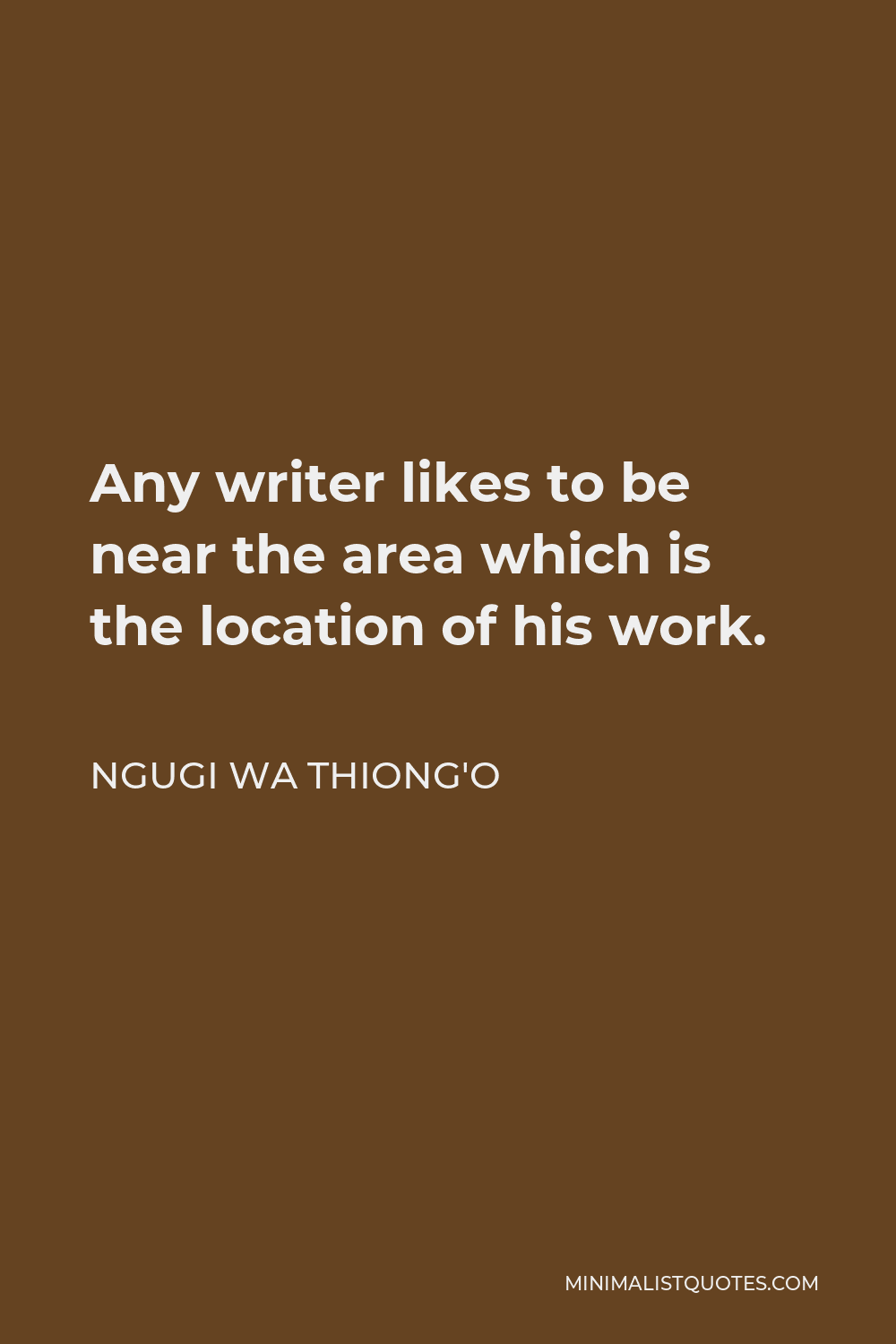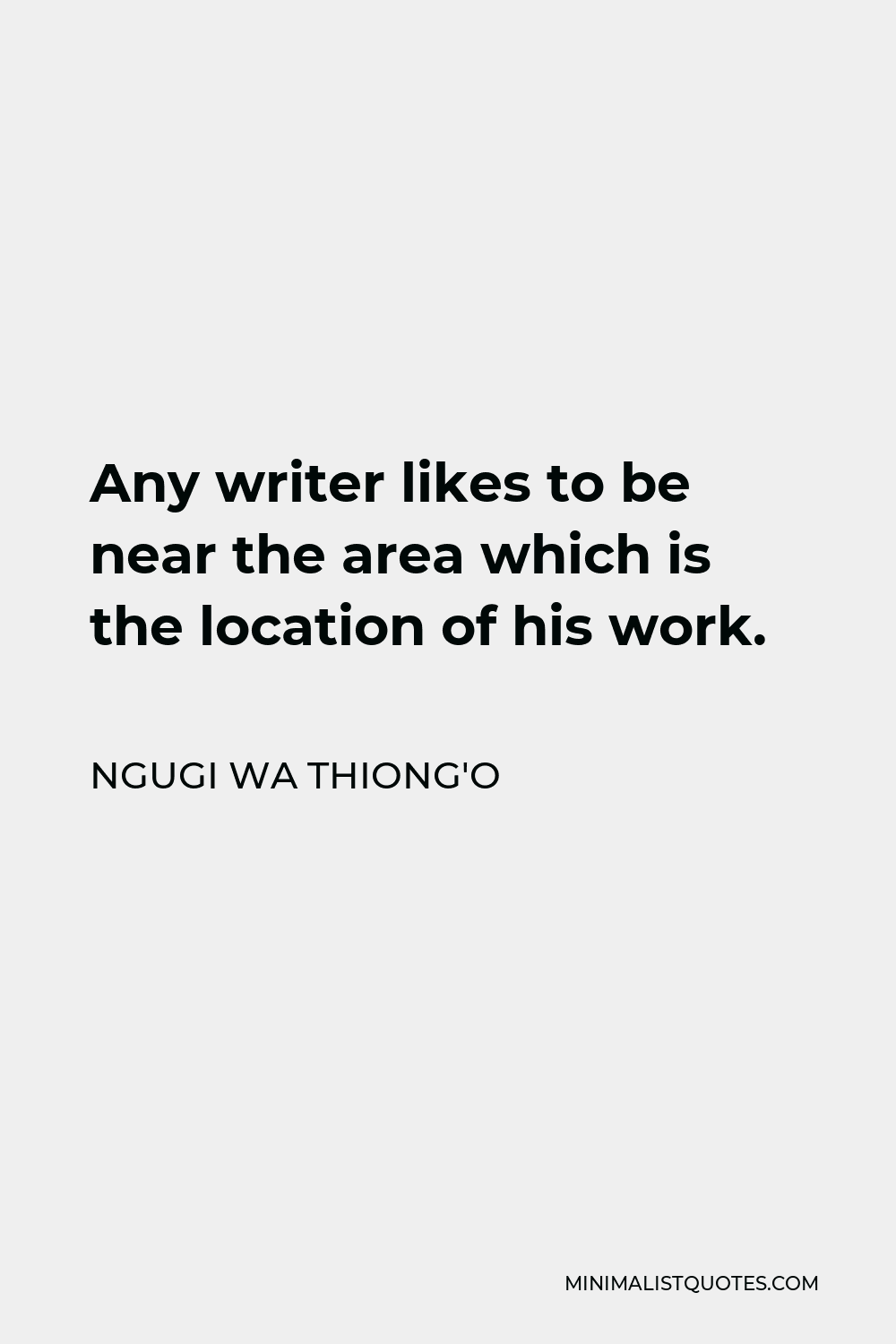I think a repressive regime always fears people who are awakened – particularly ordinary people. If they are awakened, I think governments all over the world feel uncomfortable about that; they want to be in control.
NGUGI WA THIONG'OAny writer likes to be near the area which is the location of his work.
More Ngugi wa Thiong'o Quotes
-





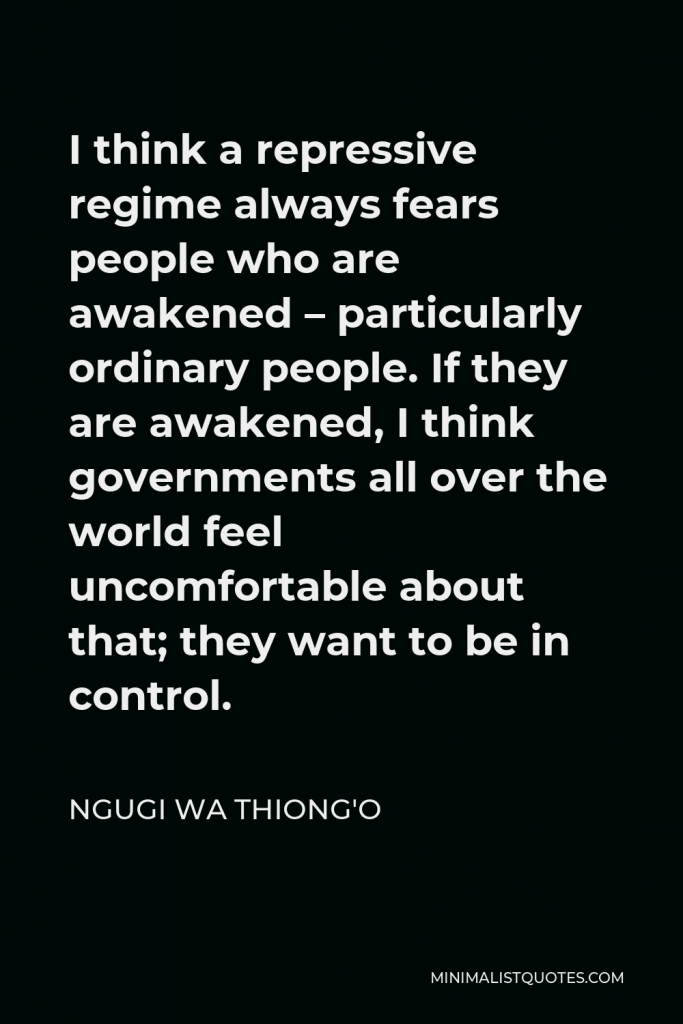

-





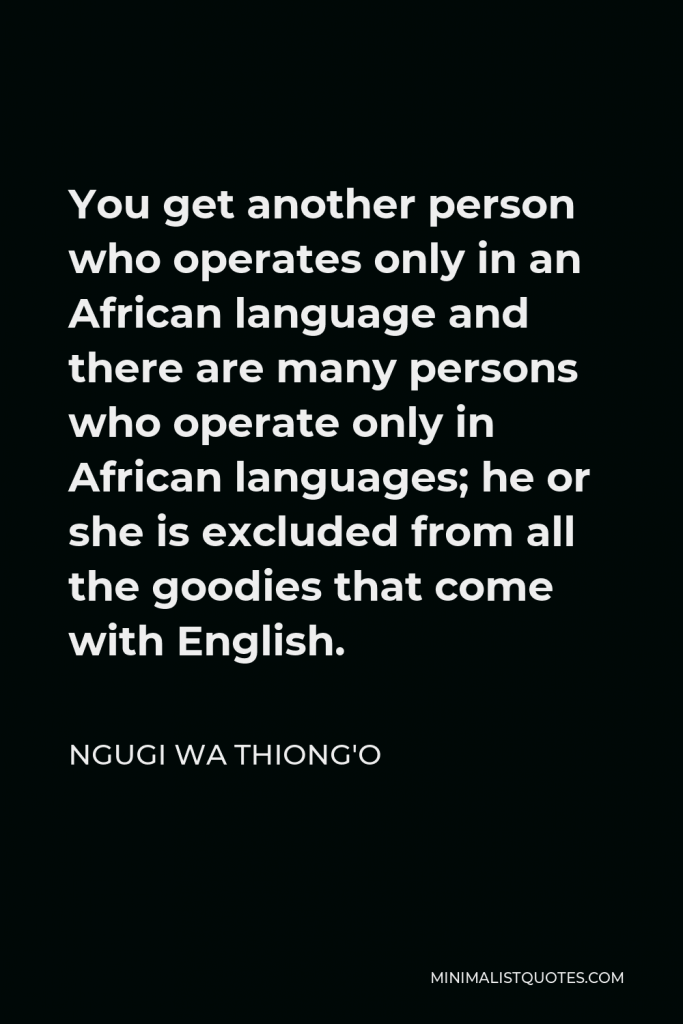

You get another person who operates only in an African language and there are many persons who operate only in African languages; he or she is excluded from all the goodies that come with English.
NGUGI WA THIONG'O -





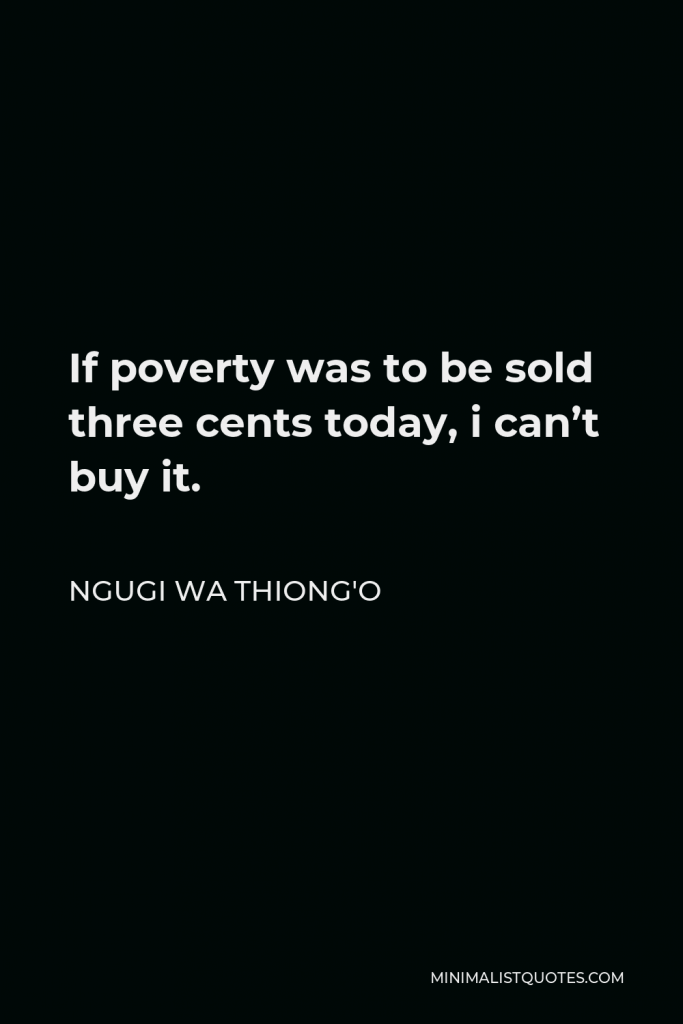

If poverty was to be sold three cents today, i can’t buy it.
NGUGI WA THIONG'O -





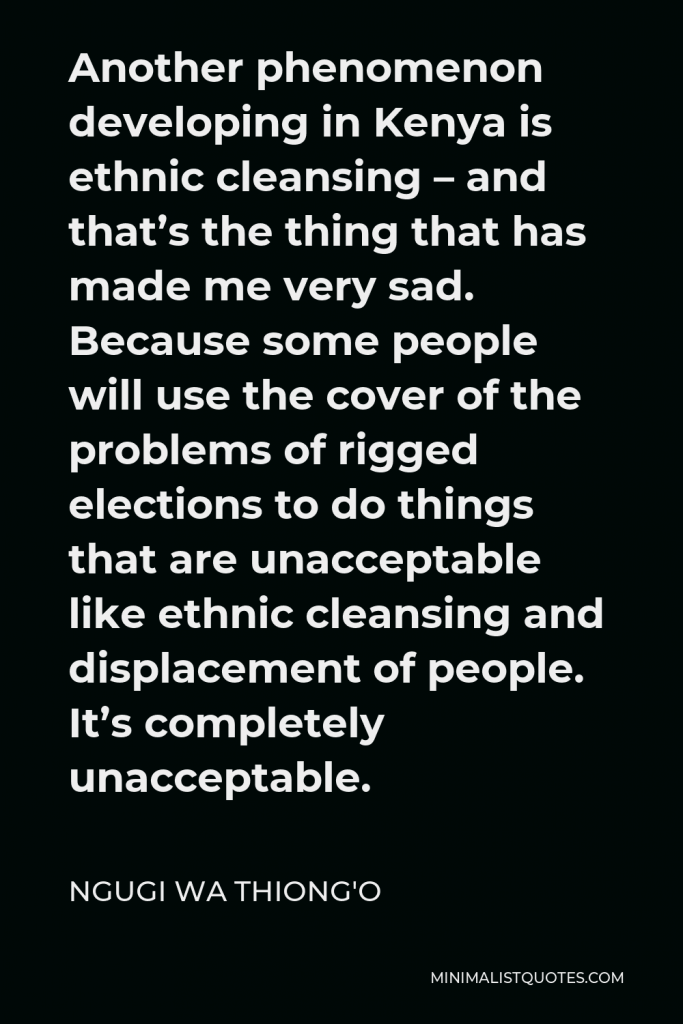

Another phenomenon developing in Kenya is ethnic cleansing – and that’s the thing that has made me very sad. Because some people will use the cover of the problems of rigged elections to do things that are unacceptable like ethnic cleansing and displacement of people. It’s completely unacceptable.
NGUGI WA THIONG'O -





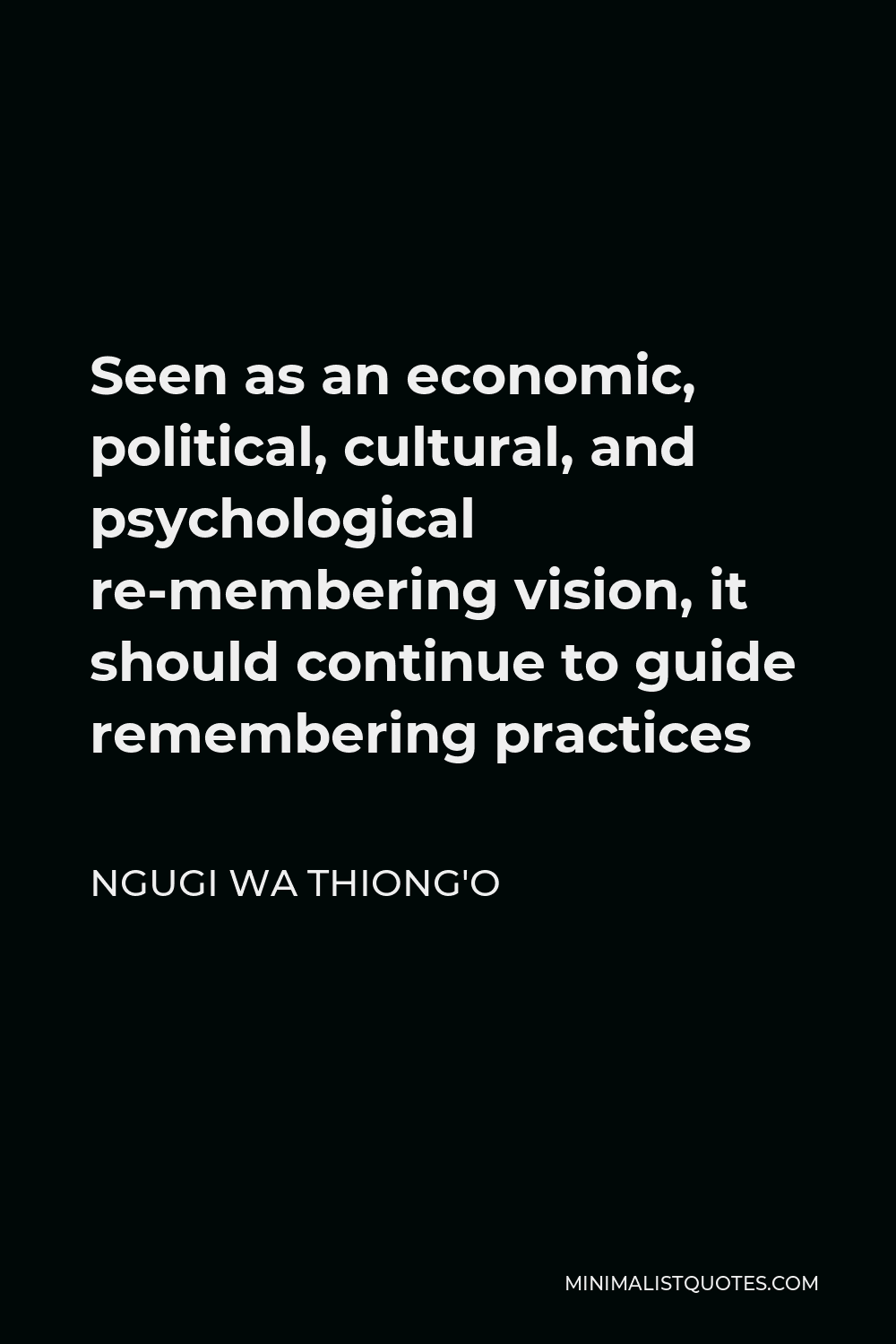
Seen as an economic, political, cultural, and psychological re-membering vision, it should continue to guide remembering practices
NGUGI WA THIONG'O -





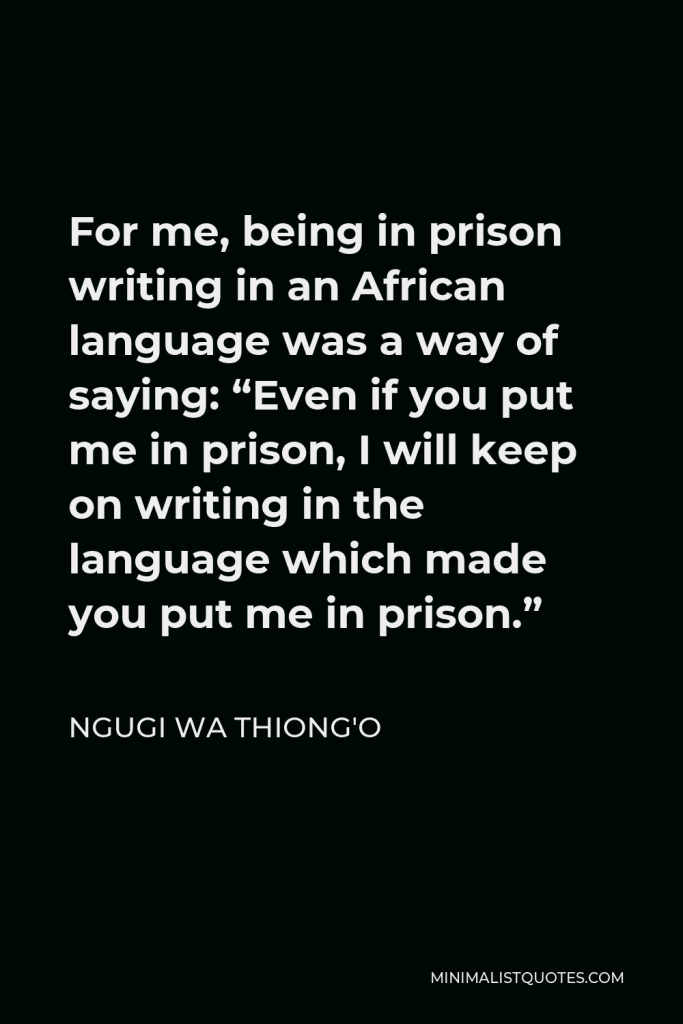

For me, being in prison writing in an African language was a way of saying: “Even if you put me in prison, I will keep on writing in the language which made you put me in prison.”
NGUGI WA THIONG'O -





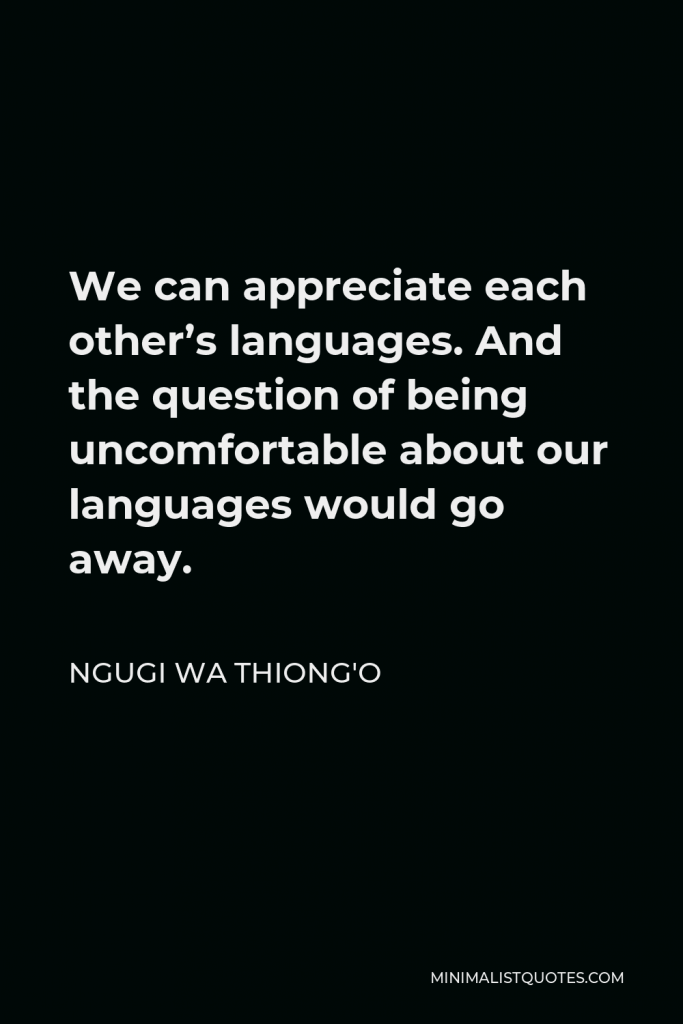

We can appreciate each other’s languages. And the question of being uncomfortable about our languages would go away.
NGUGI WA THIONG'O -





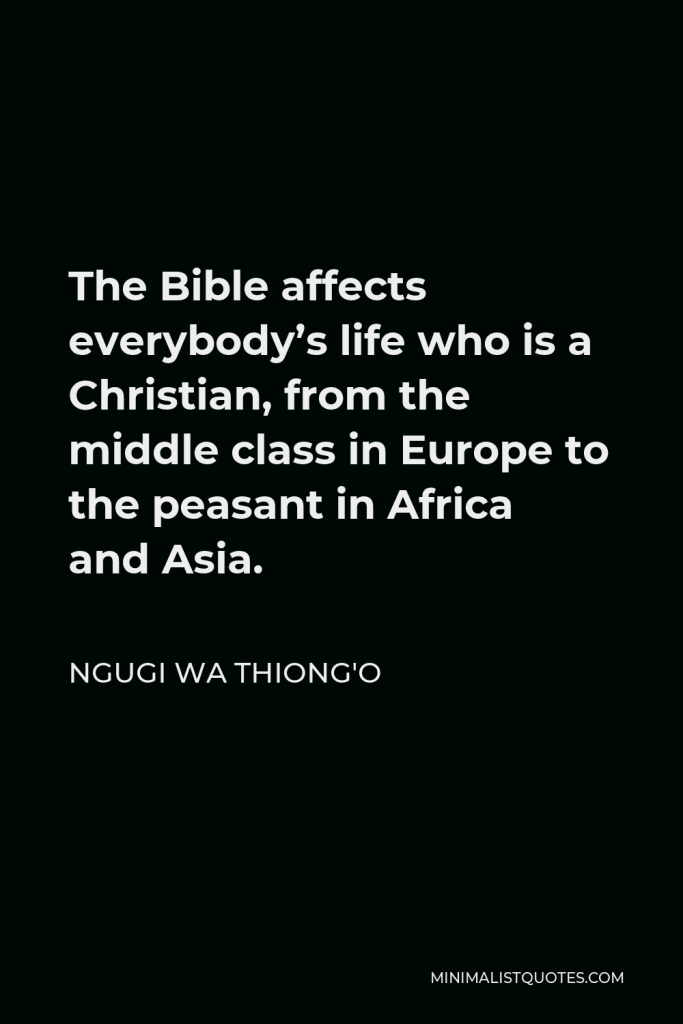

The Bible affects everybody’s life who is a Christian, from the middle class in Europe to the peasant in Africa and Asia.
NGUGI WA THIONG'O -





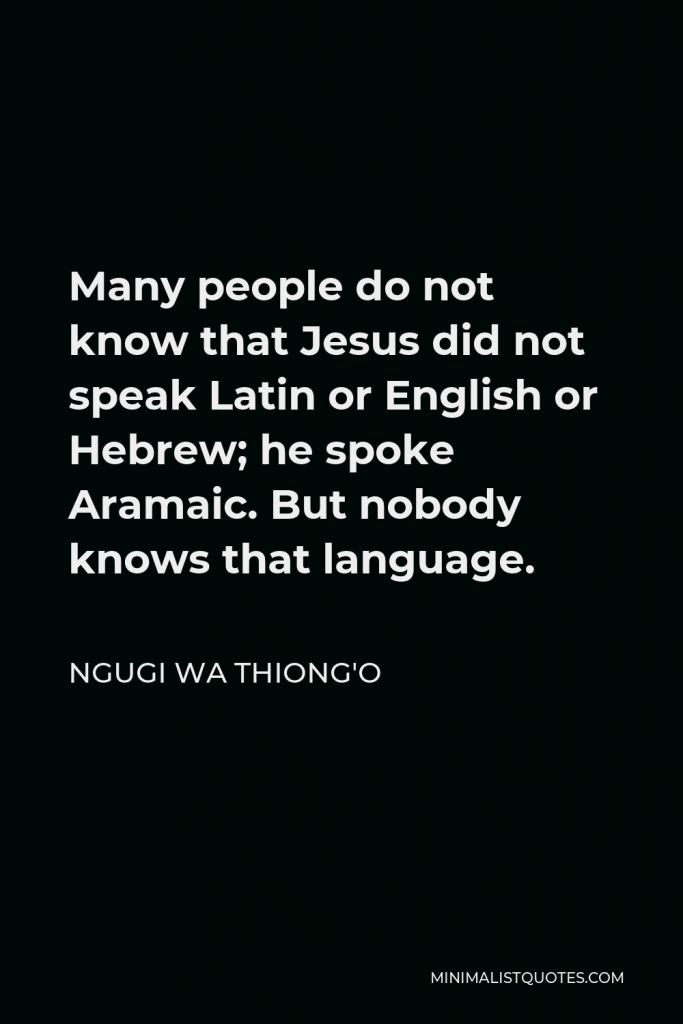

Many people do not know that Jesus did not speak Latin or English or Hebrew; he spoke Aramaic. But nobody knows that language.
NGUGI WA THIONG'O -





![Ngugi wa Thiong'o Quote - Those who strive to build a protective wall around it, and those who wish to pull it down; those who seek to mould it and those committed to breaking it up; those who aim to open our eyes, to make us see the light and look to tomorrow […] and those who wish to lull us into closing our eyes](https://minimalistquotes.com/wp-content/uploads/2022/09/those-who-strive-to-build-a-protective-wall-around-683x1024.jpg)

Those who strive to build a protective wall around it, and those who wish to pull it down; those who seek to mould it and those committed to breaking it up; those who aim to open our eyes, to make us see the light and look to tomorrow […] and those who wish to lull us into closing our eyes
NGUGI WA THIONG'O -





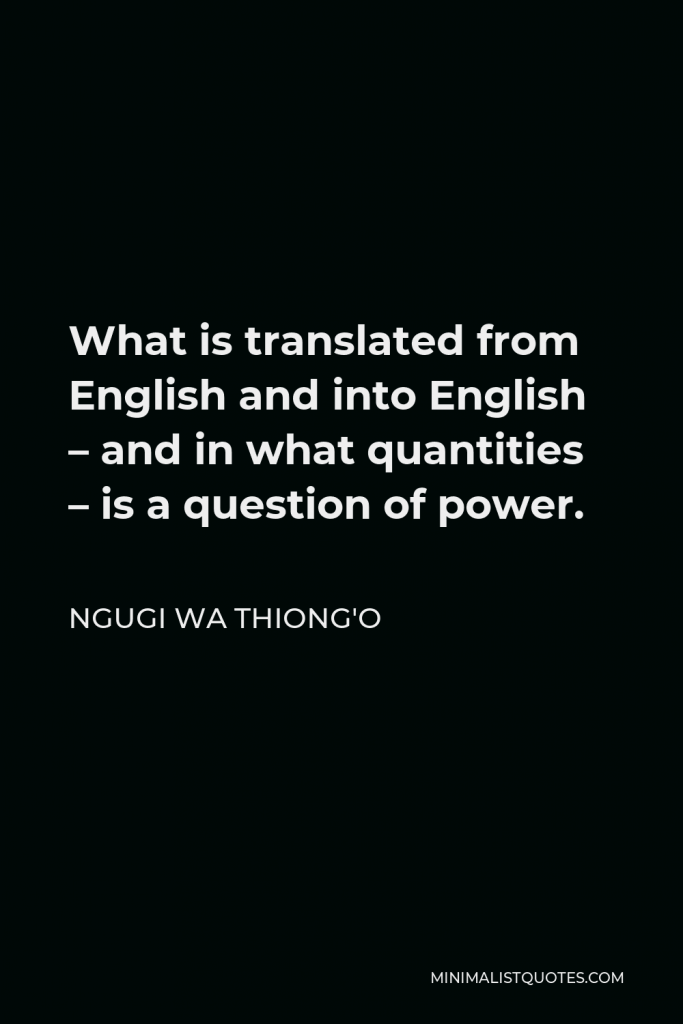

What is translated from English and into English – and in what quantities – is a question of power.
NGUGI WA THIONG'O -





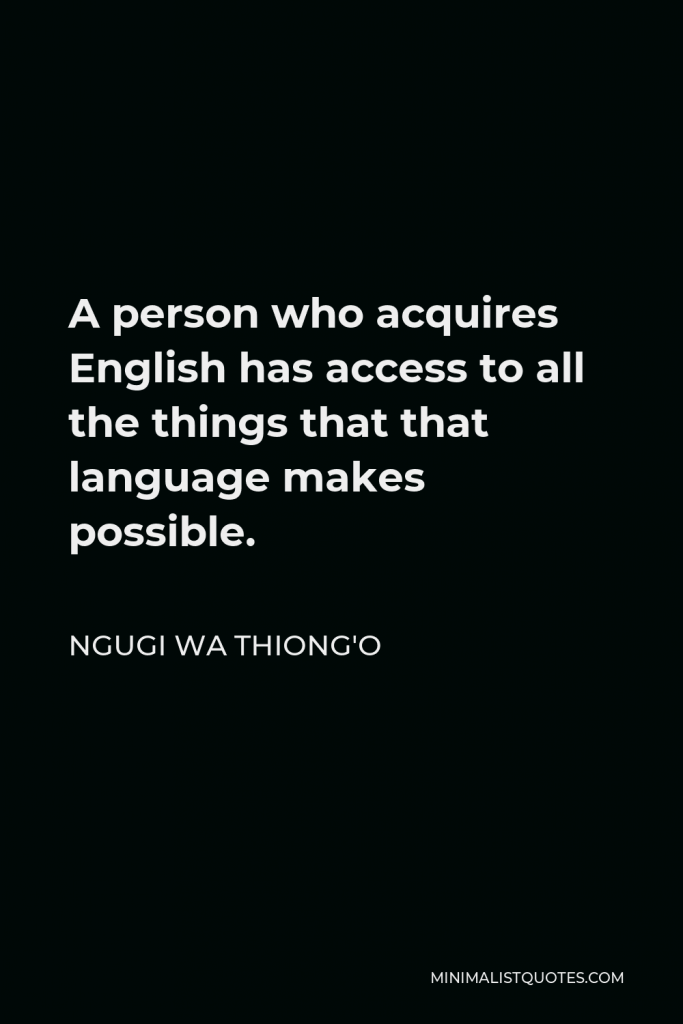

A person who acquires English has access to all the things that that language makes possible.
NGUGI WA THIONG'O -





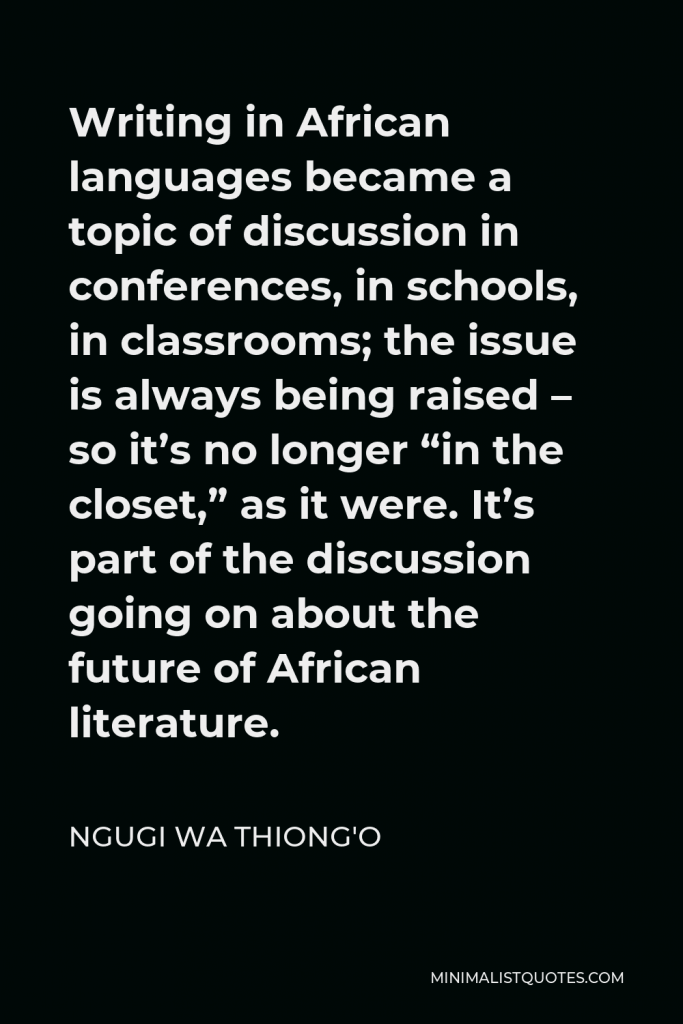

Writing in African languages became a topic of discussion in conferences, in schools, in classrooms; the issue is always being raised – so it’s no longer “in the closet,” as it were. It’s part of the discussion going on about the future of African literature.
NGUGI WA THIONG'O -





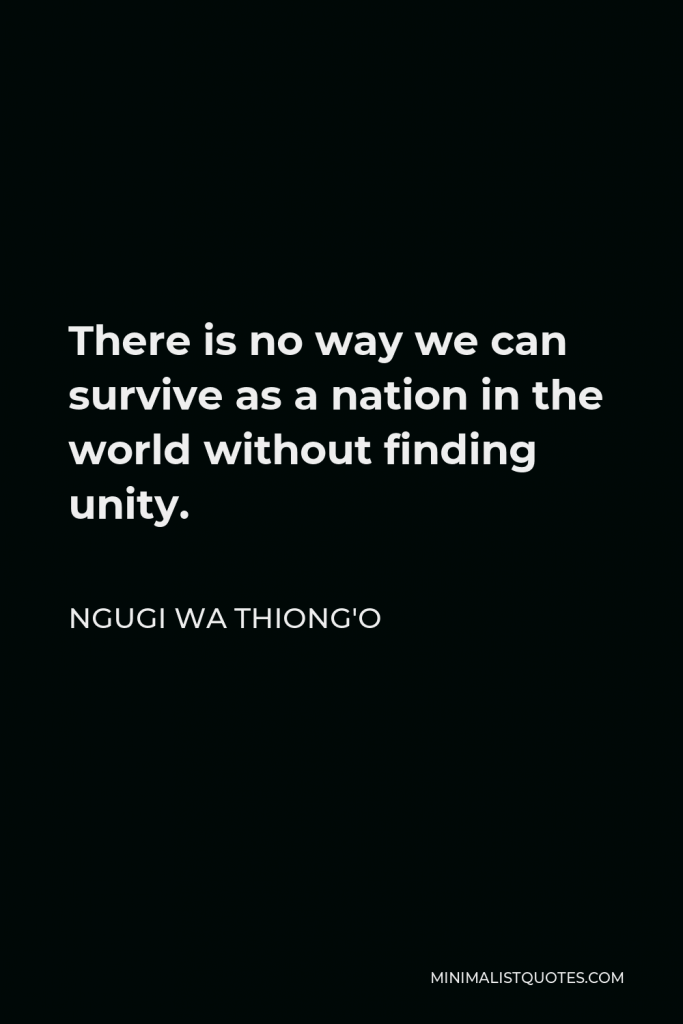

There is no way we can survive as a nation in the world without finding unity.
NGUGI WA THIONG'O -





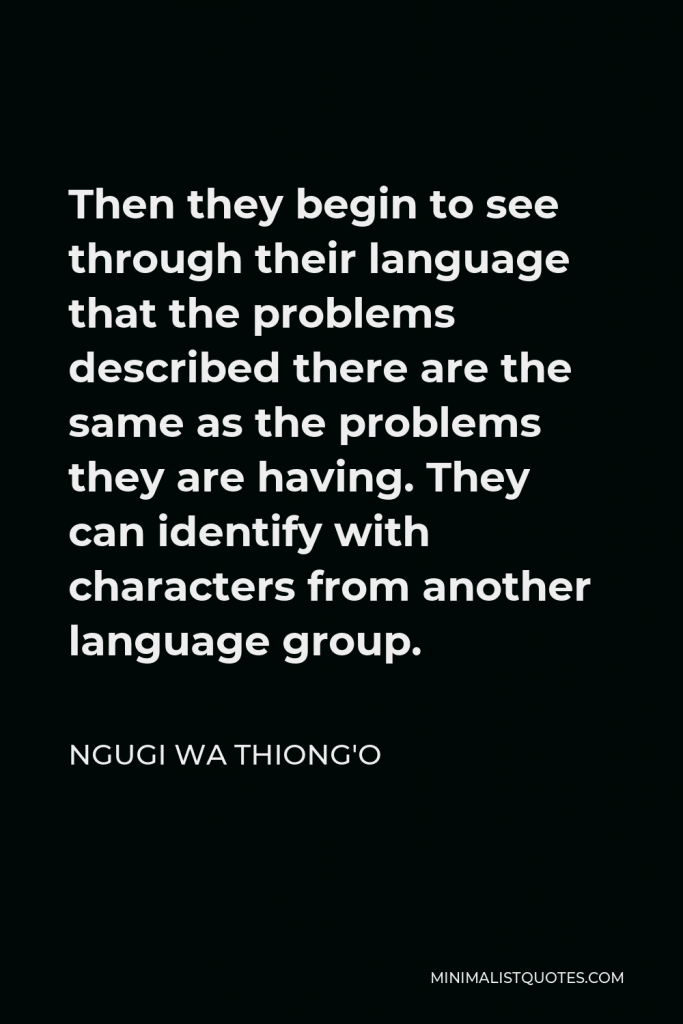

Then they begin to see through their language that the problems described there are the same as the problems they are having. They can identify with characters from another language group.
NGUGI WA THIONG'O -







The same questions are there in Native American languages, they’re there in native Canadian languages, they’re there is some marginalized European languages, like say, Irish.
NGUGI WA THIONG'O
